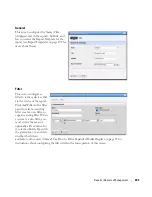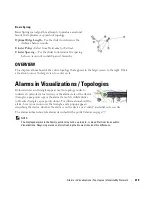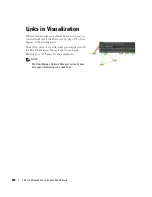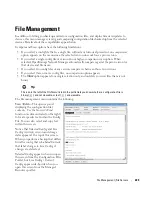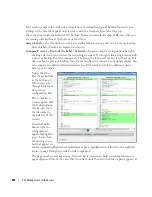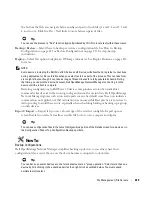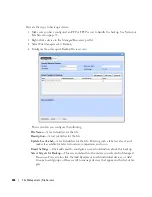
Alarms in Visualizations / Topologies | Visualize My Network
219
Basic Spring
Basic Spring is an algorithm attempts to produce a natural
layout that optimizes a spread out topology.
Optimal Edge Length
– Use the slider to determine the
distance between nodes.
Cluster Policy
–Select from
Horizontal
or
Vertical
.
Cluster Spacing
—Use the slider to determine the spacing
between icons not in child / parent hierarchy.
OVERVIEW
This displays a thumbnail of the entire topology that appears in the larger screen to the right. Click
a location to move the larger view to center on it.
Alarms in Visualizations / Topologies
Colored circles and triangles appear next to topology nodes to
indicate its network status (circles) or the alarm state of the device
(triangles, apex points up) or the alarm state of its child entities
(off-center triangles, apex points down). For information about the
alarm, hover your cursor over the triangle, and a popup appears
describing the device, whether the alarm is on the device or a “child,” and what is its severity.
The alarms indicated are like alarms described in the portlet Alarms on page 99.
NOTE:
The displayed alarms in the Alarms portlet may not be up to date, or may differ from those within
Visualizations. Resyncing alarms and/or refreshing the browser resolves this difference.
Summary of Contents for OpenManage Network Manager
Page 1: ...Dell OpenManage Network Manager version 5 1 Web Client Guide ...
Page 14: ...14 A Note About Performance Preface ...
Page 98: ...98 Schedules Portal Conventions ...
Page 142: ...142 Vendors Key Portlets ...
Page 232: ...232 File Management File Servers ...
Page 242: ...242 Deploy Configuration ...
Page 290: ...290 Key Metric Editor Monitoring Metrics This panel s display depends on the selected device ...
Page 340: ...340 ...
Page 374: ...374 Adaptive CLI Records Archiving Policy Actions and Adaptive CLI ...
Page 380: ...380 Glossary ...
Page 388: ...388 388 Index ...

